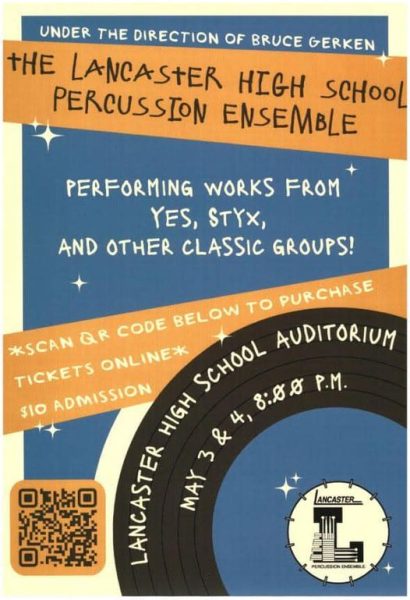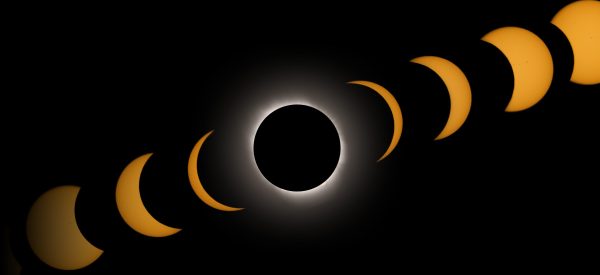Ticket to Space
Recreational space travel is not far away

Space tourism. Photo courtesy of the New York Times.
May 13, 2022
Imagine orbiting space hotels and space vacations. The concept that civilians would travel to space was once out of this world. Now celebrities and the ultra-rich have rocketed out of the Earth’s atmosphere. The future of space travel for everyday people is becoming a reality – at least for those who can afford to buy a ticket.
Eye of the Gale interviewed astrophysicist Michael Stamatikos, Associate Professor of Physics and Astronomy at Ohio State-Newark who explained that space tourism isn’t such a pie-in-the-sky idea today. Celebrities such as William Shatner and Michael Strahan and Billionaires Jeff Bezos and Richard Branson have already traveled to space.

“In a sense, they are normalizing the opportunity for space tourism, which eventually will likely be affordable to more than just the extremely affluent – akin to how other nascent forms of travel such as by airplane were initially cost-prohibitive,” he said.
A ticket for recreational space travel costs anywhere from $100,000 AP News reported that Bezos and Branson were part of an increasing number of people who are pushing the boundaries and reaching for the stars.
“They’re shooting for sky-high bragging rights as the first person to fly his own rocket to space and experience three to four minutes of weightlessness” (Dunn).
Dr. Stamatikos who has worked with astronauts such as John Glenn explained that money is not really the issue because it costs the same amount of money to send civilians to space as it does to send astronauts. He said the difference is in the purpose of going to space.
“Capitalism and the free market will evolve future space travel differently from the politics of limited government budgets,” said Dr. Stamatikos.
“In the far future, it might even be possible to travel to other planets such as Mars. In the far, far future we may even endeavor to travel to exoplanets orbiting other stars. One thing is certain, the human race needs to find a new home within the next five billion years before the Sun runs out of nuclear fuel and enters a red Giant stage, in which its volume will swell up to engulf the orbit of the Earth!”

But some think that we shouldn’t be spending our money on recreational space travel.
“I believe recreational space travel will be possible in our lifetimes, but we shouldn’t be focusing our money on space travel” commented senior Sarah Mullins.
“I believe it is more important to put the money that would be put towards space travel, towards issues on Earth that are more present. For example world hunger, pollution, climate change, deforestation, overpopulation, etc. Recreational space travel would be cool and all, but not the issue the world needs to focus on right now,” proclaimed Mullins.
Space tourism has many benefits. Like research and once in a lifetime opportunities but some may be worried about the environmental impact.
“The way the fuels are designed you’re looking at liquid hydrogen and liquid oxygen when you combine those you get water vapor. So the pollution of the space shuttle launch is water vapor,” Dr. Stamatikos stated.
“From a practical point of view, it’s something that pushes technology forward,” Dr. Stamatikos conveyed.

“I think that the more that we as a society advance in the sciences the better. I believe that, though it may seem superficial that the rich will get to have time in space for fun or vacations, it is amazing the advancements that we have made to get to this point,” said Abbie Ebert, a junior at LHS.
“It is wonderful that we have so much technology that one can easily enter space because there are surely vast resources the universe could have for us. Though personally, I would not want to go to space, I get motion sick and I am terrified of heights, there are many people who would love to go and will benefit from this. So, I agree with Dr. Stamatikos, this is an overall good thing for our society,” Ebert added.











